EpiPaws is on a mission to increase the health span of pets with the next generation of health monitoring tests.
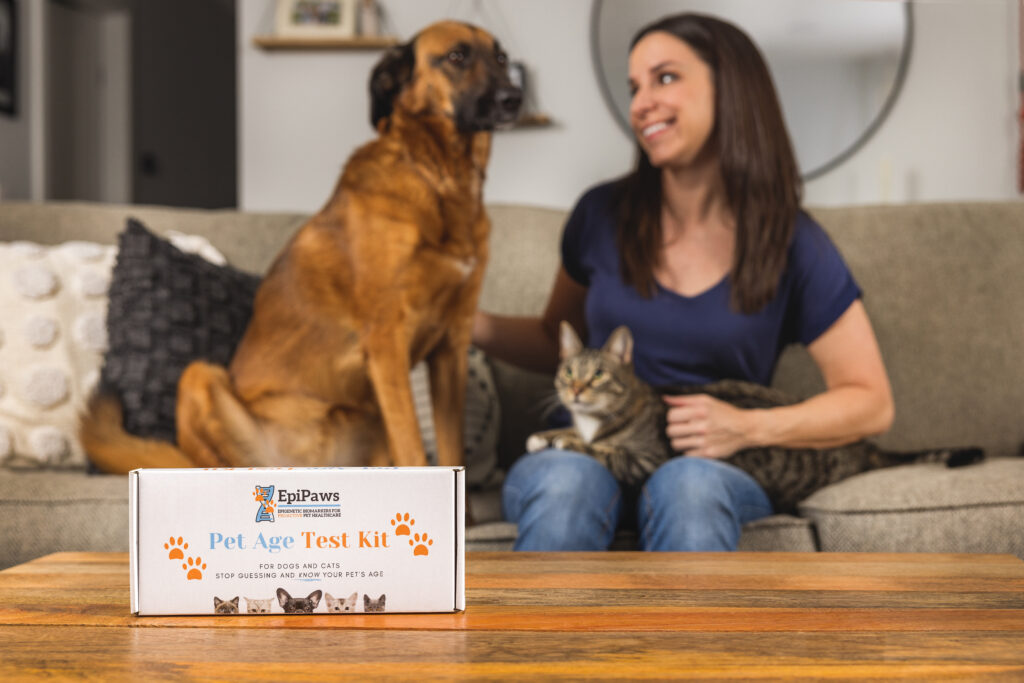
Started by an epigenetic scientist, Dr. Andria Beal started her journey studying epigenetics in sharks and dolphins during her PhD studies.
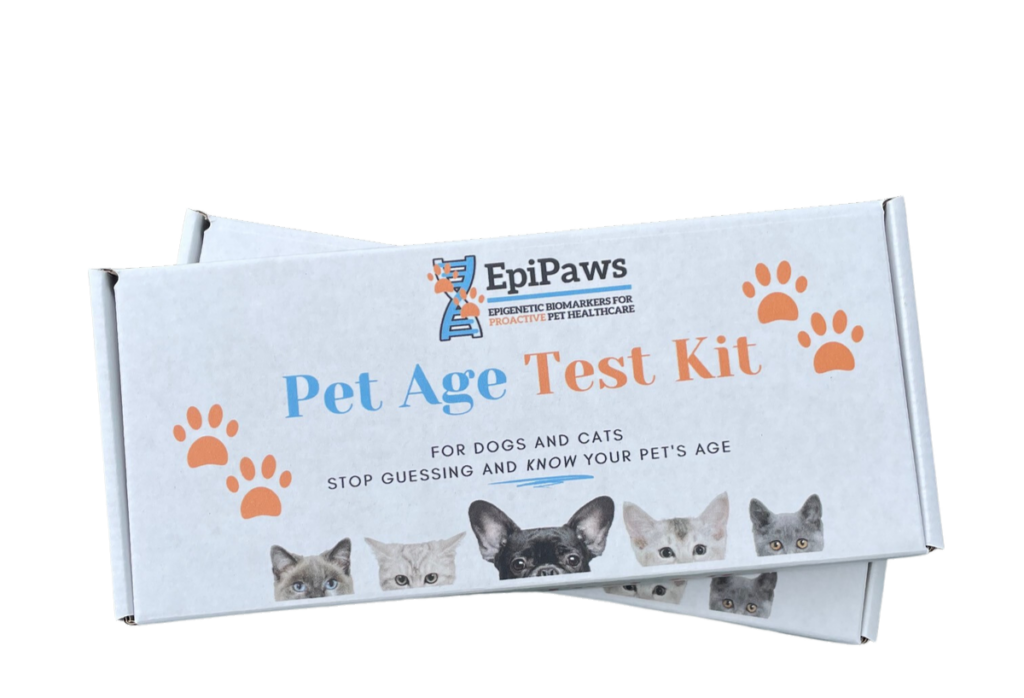
Andria was interested in understanding environmental effects on health and subsequently created the first age estimation test for dolphins because age was always a missing, but important variable to understanding how things like toxins affect a given population. She then wanted to make age estimation tests for all animals and when she began looking at making one for dogs and cats, Andria realized there was a big need for this, resulting in the creation of EpiPaws.
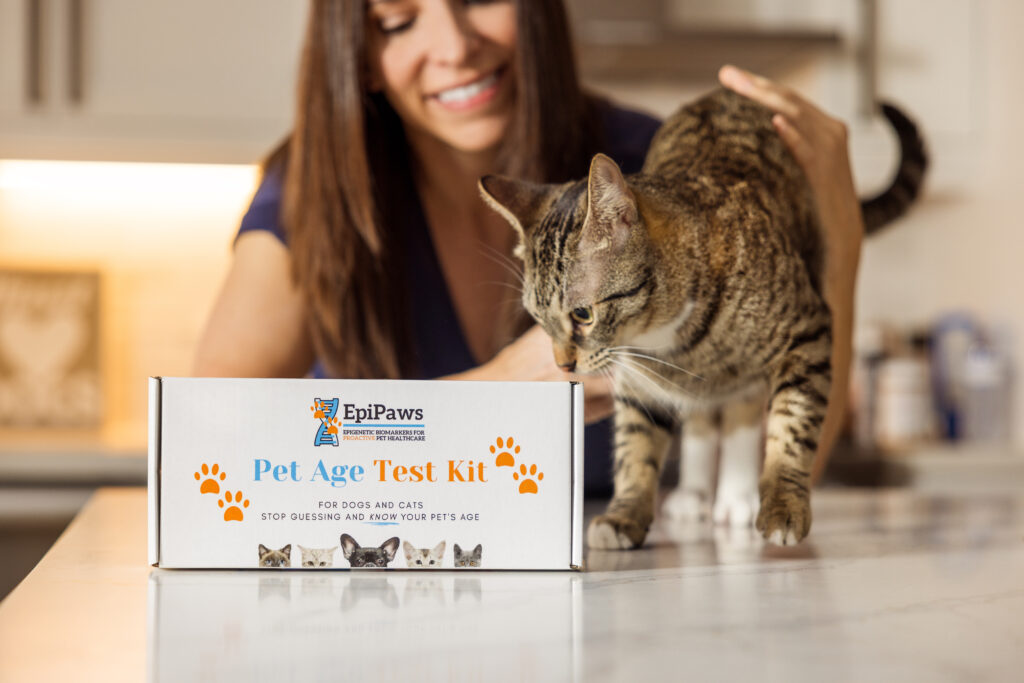
At this same time, Dr. Beal and her husband were frustrated with the level of animal care they witnessed as their dogs were becoming seniors, and they felt blindsided by their pet’s illnesses and death even though they went to the vet regularly to monitor their health. Seeing the advances in human health with epigenetic biomarkers, Andria knew that this would be a game changer for pets and the mission and vision for EpiPaws grew.
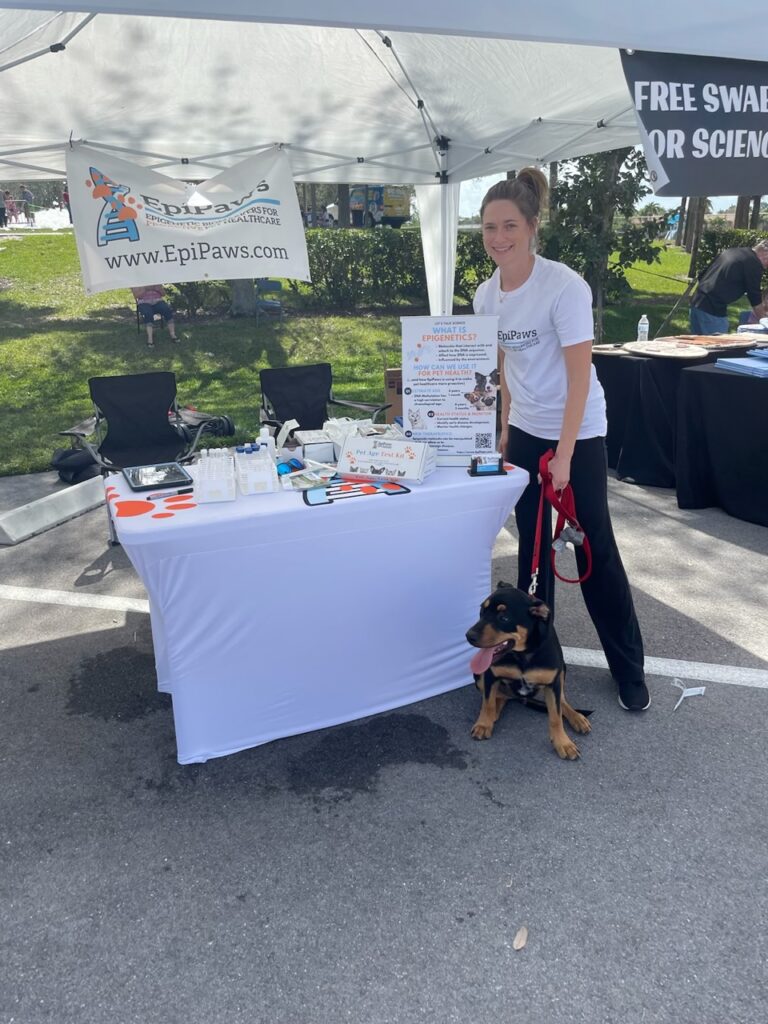
The company was officially started in January 2022 after Dr. Beal graduated. She immediately started a citizen science program to develop an age estimation test for dogs and cats. It was a bootstrap operation, and the age test was finished in October of 2022. A soft launch of the product was conducted from September to December and received great feedback from the first group of customers. The product was fully launched in January of 2023.
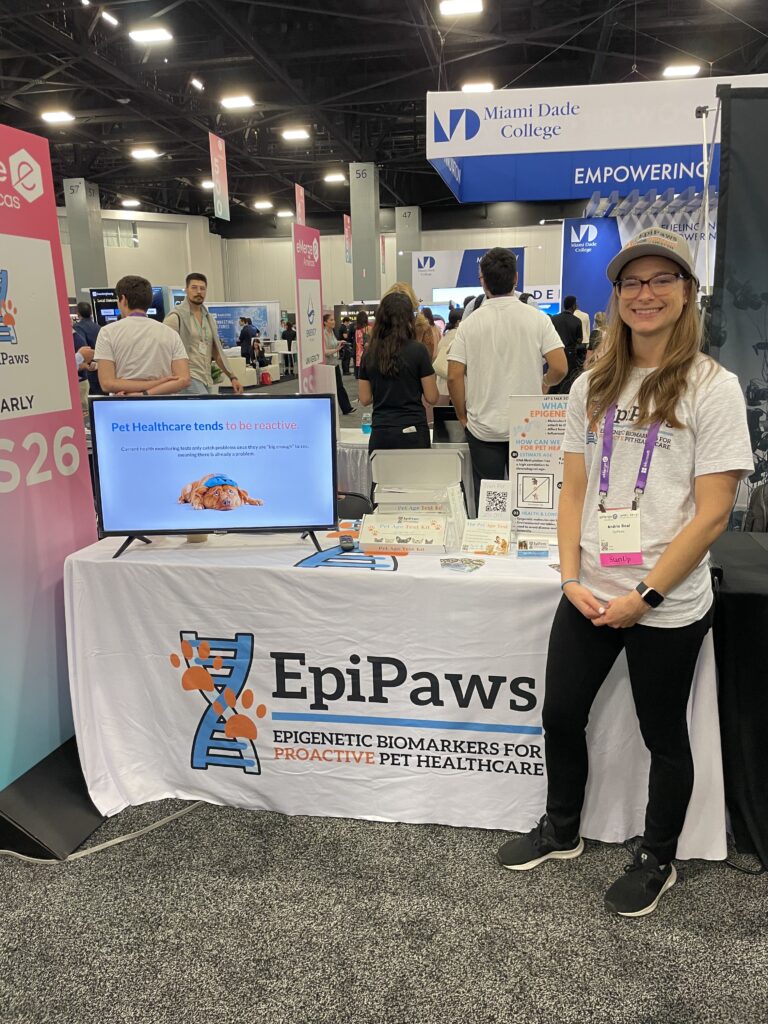
Bootstrapped for a year and half before taking any investment money, EpiPaws has since experienced steady growth and interest from larger pet companies for partnerships.
EpiPaws is now working towards a line of health monitoring tests that leverage biological age markers- markers that measure the aging rate of cells. Unlike genetic health testing which helps us understand the risk of developing certain diseases, epigenetic health testing tells us what the current health status is and the likelihood that a disease is developing right now, or in the near future. This type of testing will open the door for early interventions and new therapeutics to be developed to help us avoid the onset of disease in the first place.















